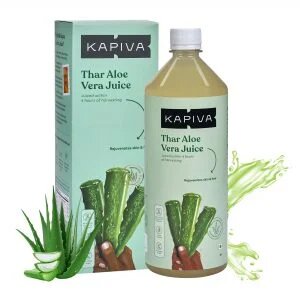Guide to Intermittent Fasting
Posted by Monil Kapiva on 7th May 2021
In the past couple of years, people are becoming more and more mindful of their diets, exercising schedules and lives in general. Weight management as an industry is booming. While different people have different ways to approach weight management, Intermittent fasting for weight loss has grown as a medically backed, easy to manage and effective way of training your mind as well as body.
What is Intermittent Fasting?
Very simply put, Intermittent Fasting is voluntary fasting, but not a mindless one at that. The intermittent fasting benefits are plenty. It’s a properly calculated diet that speaks about making a cycle between your meal time and your fasting time. There are a plethora of ways to approach this diet but the most effective remain the periodic fasting, alternate fasting and time-restricted fasting.
What is the Best Way to Start Intermittent Fasting?
There is no written rule in the book about the way you should start intermittent fasting yet some methods are more suitable for some body types and others should be chosen by other body types. Your intermittent fasting schedule should rely heavily on the kind of lifestyle you live including your daily diet, whether or not you exercise and most importantly, the goal you have in your mind.
How Long Does it Take for Intermittent Fasting to Work?
While Intermittent fasting is highly effective, it is not an internet quick-fix. When you start intermittent fasting, you usually have to wait for six to ten weeks before seeing any visible results. This does mean that intermittent fasting is a slow process but the weight lost over a few weeks is harder to gain back.
How Much Weight can you Lose in a Month with Intermittent Fasting?
As mentioned earlier, when looking to invest your time in diets like intermittent fasting, it is good to know that they take their time to show results. So, while there is no way you can lose amazing amounts of weight in a month, you can surely manage your weight in a healthy manner.
Methods of Intermittent Fasting
-
The 16:8 Method
The most popular method of intermittent fasting, the 16:8 method involves restricting your diet to a window of eight to ten hours. While being on an empty stomach for the rest of the time. It is important to note that even when eating, one should stay away from fatty, saturated, processed and junk food. It is as easy as not having anything post dinner and skipping breakfast. But since, skipping breakfast isn’t always a healthy option, one should see which method of intermittent fasting works for them.
-
5:2 Diet
The 5:2 diet, on the other hand, involves eating for five days and limiting your calorie intake to five to six hundred calories on the other two days. This is an easier form of diet to follow since it doesn’t involve actual fasting. On most days you’re free to consume normal home-cooked food, and on the two days you must limit calories. It is also a given that you have to stay away from processed, oily and junk food.
-
Eat Stop Eat
The Eat Stop Eat method involves a twenty four hour fasting once or twice a week. Simply put, this means not eating anything post dinner on day one to the time of your dinner on the following day. While having water, coffee, and other zero-calorie beverages is allowed, one should stay away from solid foods completely.
-
Alternate Day Fasting
As the name suggests, Alternate Day Fasting demands you to eat one day and fast the next, alternatively. Ofcourse, this diet is the hardest to achieve hence isn’t advisable for beginners or anyone who can suffer any side effects.
Liquids you can consume on an IF diet
When beginning a diet, most people end up starving themselves in the wrong way, not only does this result in energy dips but also having a calorie-deficit diet can make you fall prey to many ailments. Thus, it’s better to stick to Ayurvedic juices that can help you keep a full stomach as well as give your body the nutrition it needs for daily functioning.
-
Herbal Tea
Herbal or Ayurvedic tea like the Kapiva masala tea form for an excellent substitute to normal tea on fasting days. With its zero calorie content, the masala tea doubles as a slimming agent as well as providing the body with various benefits. The soothing properties of an Ayurvedic tea can help kill hunger, calm your nerves and keep you satisfied in general too.
-
Amla Juice

Ayurvedic juices helps you fight fatigue and build resistance against hunger whilst saving you from hunger pangs around the clock. Once your body gets into fasting mode, it becomes very easy to give in to cravings when at low energy. This is exactly where you need to make a shift from unhealthy to healthy. Amla Juice has many benefits one of which includes it being an excellent calorie cutter. The detoxifying properties of Amla is bound to make you feel refreshed every single day and help you achieve your ideal weight sooner.
-
Aloe Vera Juice

This wonder plant has long been used for its burn healing, skin fixing properties. But very recently, it has passed its way to the kitchen table, getting to be a part of many juices. It finally stands on its own as a juice that can help boost metabolism and further the process of weight loss. Not only this, the Aloe Vera juice can also be used to maintain blood sugar levels.
-
Apple Cider Vinegar
Apple Cider Vinegar is considered to be a blessing for anyone who’s trying to reach their ideal weight. Whether it is with or without intermittent fasting, Apple Cider Vinegar is completely self-sufficient. But, when it comes to making it a part of your intermittent fasting schedule, Apple Cider Vinegar only helps in speeding up the weight management process for you. Consuming one to two tablespoons of apple cider vinegar diluted with water on an empty stomach easily accelerates the digestive process.
At Kapiva, we understand the importance of a healthy body, mind and lifestyle. Thus, we have put together a range of products that can help you achieve your weight management goals easily. Scroll through a catalogue, and shop with us. We have something for every need!



